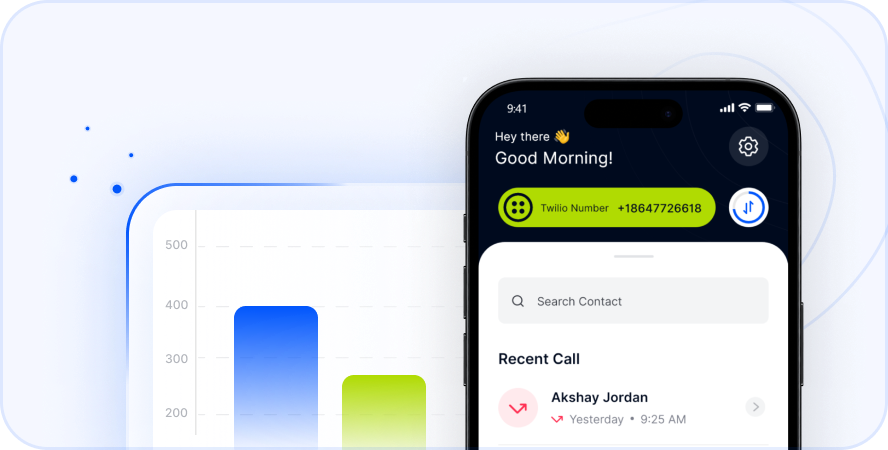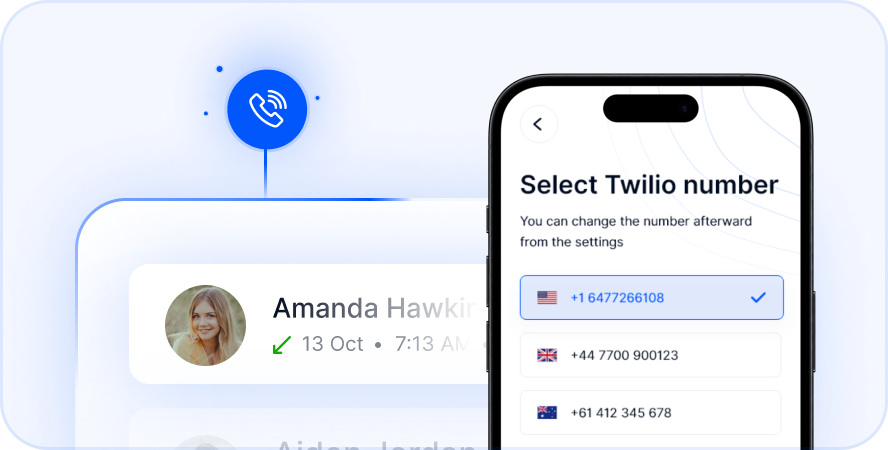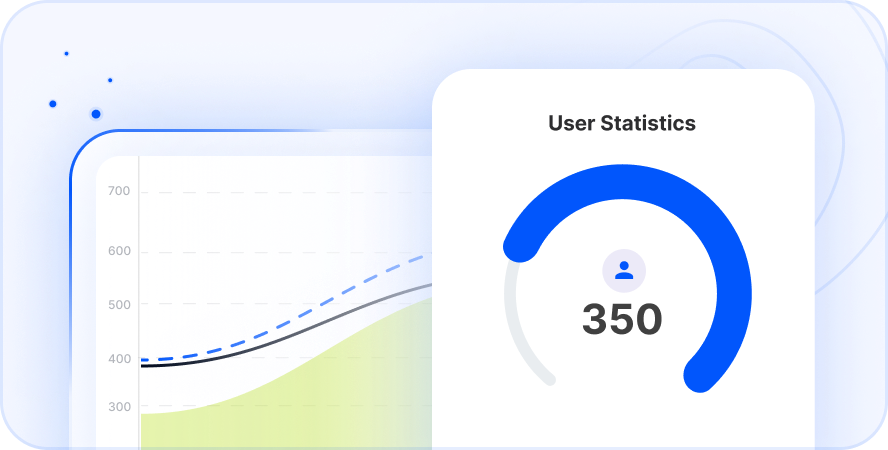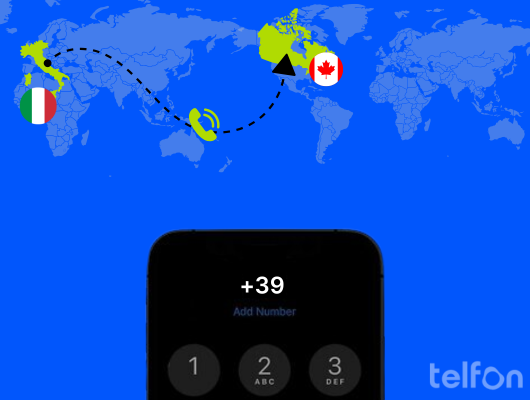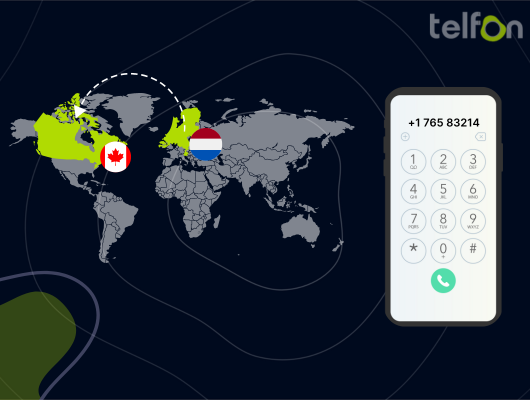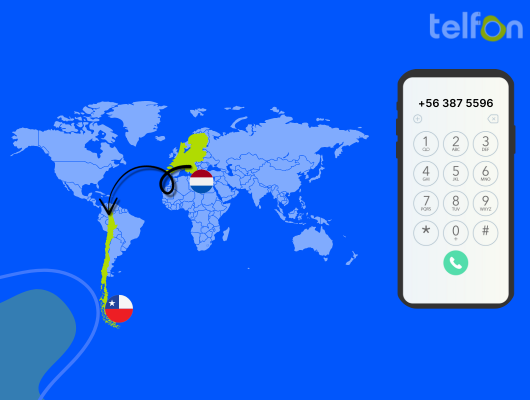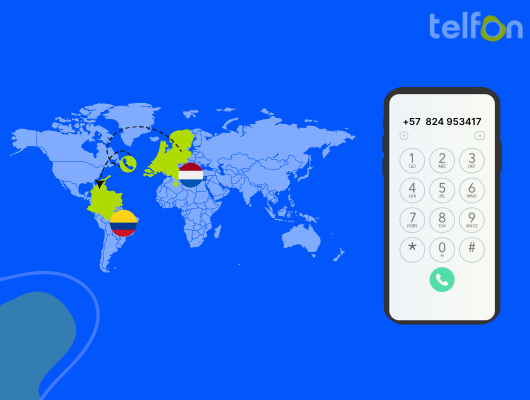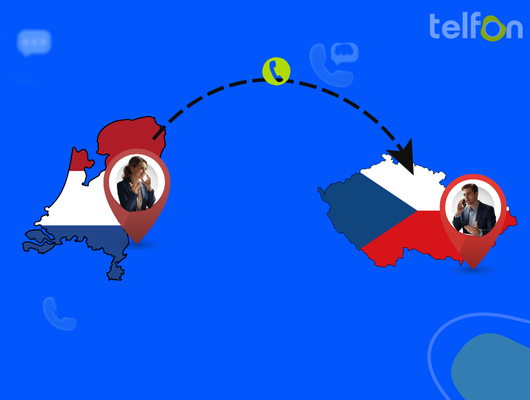Connecting with friends, family, or business contacts in Japan from Canada might seem complicated. You need to understand international dialing codes, time differences, and potential costs. However, with the right information and tools, calling Japan from Canada becomes straightforward and affordable. This guide breaks down everything you need to know, ensuring your calls go through without a hitch.
Japan is a vibrant country with a rich culture and a thriving economy, making it a frequent destination for calls from Canada. Whether you are planning a trip, managing business operations, or simply catching up with loved ones, mastering the art of international calling is essential. You need to know how to dial correctly, understand the time zones, and find cost-effective solutions. We’ll explore these aspects thoroughly. For more general information on international dialing, you can refer to resources like CountryCode.org to find codes for various nations.
Understanding International Calling to Japan
Before you pick up your phone, it’s helpful to understand the basic components of an international call. Every country has a unique country code. You also need an “exit code” from your originating country to signal that you are making an international call.
The Basics: Country Code and Exit Code
Imagine an international call as sending a letter overseas. You need the correct address (the phone number), the correct country (Japan’s country code), and the correct postage mark from your location (Canada’s exit code). Getting these details right is the first step to a successful connection.
Japan’s Country Code
Japan’s country code is +81. This unique two-digit number tells the global telephone network that your call is destined for Japan. You will always dial this code after your own country’s exit code.
Canada’s Exit Code
When calling out of Canada, you need to dial the international exit code, which is 011. This code signals to your Canadian phone provider that you are initiating an overseas call. You must always dial 011 before the country code.
Calling Japan from a Landline in Canada
Landlines are traditional and reliable for making international calls. If you are using a home phone, the dialing sequence is very specific. Follow these steps carefully to ensure your call connects to Japan.
Step-by-Step Guide for Landlines
Making a call from your landline is a simple process. Just remember the correct order of numbers.
- Dial Canada’s Exit Code: First, dial 011. This tells your phone system you are calling internationally.
- Dial Japan’s Country Code: Next, dial 81. This directs your call to Japan.
- Dial the Area Code: Now, dial the specific area code for the city or region in Japan you wish to reach. For example, Tokyo’s area code is 3.
- Dial the Local Phone Number: Finally, dial the local Japanese phone number. This is the seven or eight-digit number of the person or business you are calling.
Example: To call a Tokyo landline (area code 3, local number 1234-5678) from a Canadian landline, you would dial: 011 – 81 – 3 – 1234 – 5678.
Calling Japan from a Mobile Phone in Canada
Calling Japan from your mobile phone offers more flexibility. The dialing process is slightly different compared to a landline, especially regarding the exit code. Mobile phones usually simplify the exit code entry.
Step-by-Step Guide for Mobile Phones
You have two main options when using a mobile phone to call Japan. Both methods are straightforward.
- Using the Plus Sign: The most common and easiest method is to use the plus sign (+). The plus sign automatically acts as your country’s exit code.
Press and hold the 0 key on your mobile phone until the + symbol appears.
Dial 81 (Japan’s country code).
Dial the area code (e.g., 3 for Tokyo).
Dial the local phone number.
Example: To call a Tokyo landline (area code 3, local number 1234-5678) from a Canadian mobile, you would dial: +81 – 3 – 1234 – 5678.
- Using the Traditional Exit Code: You can also dial the traditional exit code 011 if you prefer.
Dial 011 (Canada’s exit code).
Dial 81 (Japan’s country code).
Dial the area code.
Dial the local phone number.
Example: To call a Tokyo landline (area code 3, local number 1234-5678) from a Canadian mobile, you would dial: 011 – 81 – 3 – 1234 – 5678.
Using the plus sign is generally recommended. It works universally across different mobile networks and removes the need to remember specific exit codes.
Understanding Japanese Phone Number Formats
Japanese phone numbers follow a specific structure. Knowing this structure helps you dial correctly and avoid confusion. Numbers vary slightly depending on whether you are calling a landline or a mobile phone.
Local vs. Mobile Numbers
Japanese phone numbers typically consist of 10 or 11 digits after the country code. The format includes an area code followed by the subscriber number.
- Landline Numbers: These generally have a two to five-digit area code followed by a six to eight-digit subscriber number. The total length is usually 10 digits after the country code. For example, Tokyo numbers are 3 (area code) + 8 digits. Osaka numbers are 6 (area code) + 8 digits.
- Mobile Numbers: Japanese mobile numbers always start with 070, 080, or 090. When dialing from overseas, you drop the initial ‘0’. So, a Japanese mobile number will become +81 followed by 70, 80, or 90, and then the eight-digit subscriber number. This makes them 11 digits long after the country code.
Key Takeaways on Formats:
- Country Code: Always +81
- Landlines: +81 – (Area Code) – (Subscriber Number)
- Mobile Phones: +81 – (70/80/90) – (Subscriber Number) (Remember to drop the leading ‘0’ for mobile numbers when dialing internationally).
Select Number
Navigating Area Codes in Japan
Japan has numerous area codes, with major cities having shorter, more memorable ones. Knowing the correct area code is crucial for connecting to a specific region or city.
Major Cities and Their Codes
| City | Area Code |
|---|---|
| Tokyo | 3 |
| Osaka | 6 |
| Nagoya | 52 |
| Kyoto | 75 |
| Yokohama | 45 |
| Sapporo | 11 |
| Fukuoka | 92 |
| Kobe | 78 |
| Hiroshima | 82 |
| Sendai | 22 |
If you are unsure of the area code, you can usually find it by searching online for the specific city or region. Always double-check to avoid misdialing.
Finding the Best Time to Call Japan
Time differences can be a major hurdle when making international calls. Japan operates on Japan Standard Time (JST), which is UTC+9. Canada has multiple time zones, so understanding the difference is crucial to avoid calling at inconvenient hours.
Time Zone Differences Explained
Canada spans six primary time zones, leading to significant differences with Japan.
Here’s a quick comparison:
| Canadian Time Zone | Offset from UTC | Time Difference from JST (UTC+9) |
|---|---|---|
| PST (Vancouver) | UTC-8 | JST is 17 hours ahead |
| MST (Calgary) | UTC-7 | JST is 16 hours ahead |
| CST (Winnipeg) | UTC-6 | JST is 15 hours ahead |
| EST (Toronto) | UTC-5 | JST is 14 hours ahead |
| AST (Halifax) | UTC-4 | JST is 13 hours ahead |
| NST (St. John’s) | UTC-3:30 | JST is 12.5 hours ahead |
Daylight Saving Time (DST) Note: Canada observes DST, which shifts clocks forward by one hour. This changes the offset by one hour during DST periods. Japan does not observe DST, so its time remains constant. Always check current time zones and DST status when planning your call.
Tips for Optimal Calling Hours
Consider these tips to find the best calling time:
- Morning in Canada: If you call early in the morning from Canada, it will be late afternoon or evening in Japan. For example, if it’s 8:00 AM EST in Toronto, it’s 10:00 PM JST in Tokyo. This might be a good time to reach someone after their workday.
- Afternoon in Canada: Calling in the late afternoon from Canada might mean it’s early morning the next day in Japan. This is ideal for reaching businesses at the start of their day. For example, 4:00 PM PST in Vancouver is 9:00 AM JST the next day in Tokyo.
- Use a Time Zone Converter: Rely on online time zone converters. These tools account for DST and provide accurate current times. Simply input your location and Japan, and it will show you the corresponding times.
- Coordinate in Advance: If possible, ask your contact in Japan what time works best for them. This is the most considerate approach.
Understanding the Cost of Calling Japan from Canada
International calling costs can vary significantly. Traditional phone carriers often charge premium rates, while newer technologies offer more affordable options. It is important to know what you are paying for to avoid unexpected bills.
Traditional Carrier Costs
Major Canadian mobile and landline providers typically offer international calling plans or charge per-minute rates. These rates can range from a few cents to over a dollar per minute, depending on your plan and the specific provider.
- Pay-Per-Minute: Without an international calling plan, each minute can be expensive. A long conversation can quickly add up.
- International Calling Plans: Many carriers offer add-on packages for international calls. These plans usually provide a block of minutes for a fixed monthly fee. Review the terms carefully; some plans might have specific country inclusions or exclusions.
- Hidden Fees: Watch out for connection fees, surcharges, or different rates for calling landlines versus mobile phones in Japan. These small charges can accumulate over time.
Hidden Fees to Watch For
Sometimes, the listed per-minute rate is not the only cost.
- Connection Charges: Some providers add a flat fee for each international call you initiate.
- Peak vs. Off-Peak Rates: Rates might differ based on the time of day you call. Calling during peak hours could be more expensive.
- SMS and Data Roaming: If you are also sending messages or using data in Japan, ensure you understand those costs. They are separate from calling charges.
- Premium Numbers: Avoid calling any premium-rate numbers in Japan, as these come with significantly higher costs.
Why You Might Need to Call Japan
People call Japan for various reasons, reflecting diverse personal and professional needs. Understanding these common scenarios can highlight the importance of reliable and affordable international calling solutions.
Personal Connections
- Family and Friends: You might have relatives or close friends living, working, or studying in Japan. Regular calls help maintain these important relationships across the distance.
- Travel Planning: If you are planning a vacation or extended stay in Japan, you might need to call hotels, tour operators, or local contacts to finalize arrangements.
- Cultural Exchange: Students on exchange programs or individuals involved in cultural initiatives often need to communicate with hosts or organizers in Japan.
Business Opportunities
Japan is a major global economic power. Canadian businesses often engage with Japanese counterparts.
- Trade and Commerce: Canadian companies might import goods from Japan or export to Japanese markets. Regular communication with suppliers, distributors, or clients is vital for smooth operations.
- Partnerships and Investments: Businesses often seek to establish partnerships or explore investment opportunities in Japan. Direct communication is critical for negotiations and building trust.
- Customer Support: Companies with a Japanese customer base need to provide effective support, which often includes direct phone contact.
- International Hiring: HR professionals in Canada might need to conduct interviews or communicate with potential candidates in Japan.
Travel Planning
Beyond personal travel, many agencies and individuals coordinate travel to Japan.
- Tour Operators: Canadian travel agencies booking trips to Japan frequently call hotels, transport services, and activity providers to confirm bookings and itineraries.
- Visa and Immigration: Individuals applying for visas or immigration services to Japan might need to contact the Japanese embassy or consulates directly for information or updates.
Educational Pursuits
Academic institutions and students frequently connect with Japan.
- Student Exchange Programs: Canadian students studying in Japan, or Japanese students in Canada, rely on calls to coordinate their studies, living arrangements, and general well-being.
- Academic Collaboration: Researchers and professors in Canada often collaborate with Japanese universities or research institutions. Regular calls are essential for project coordination and sharing findings.
How Telfon Makes Calling Japan Easier and More Affordable
Traditional international calling can be cumbersome and expensive. Telfon offers a modern, efficient, and cost-effective alternative for calling Japan from Canada. It leverages cloud telephony to provide virtual phone numbers and advanced communication features, making global connections simpler for individuals and businesses alike.
Virtual Phone Numbers for Japan
With Telfon, you can easily purchase a virtual phone number Japan. This means you can have a local Japanese phone number without physically being in Japan.
- Local Presence: A virtual Japanese number gives your contacts in Japan a local number to call, eliminating international charges for them. This makes it much easier for them to reach you.
- Professional Image: For businesses, a local number creates a professional, local presence in the Japanese market, even if your operations are based in Canada. It fosters trust and accessibility.
- Easy Acquisition: Telfon makes getting a virtual number simple, bypassing complex traditional setup processes.
Cost-Effective International Calling
Telfon is designed to reduce the high costs associated with international calling Canada to destinations like Japan. It offers competitive rates that are often significantly lower than traditional carriers.
- Reduced Rates: Enjoy low per-minute rates for your Canada to Japan calls. This means you can have longer conversations without worrying about exorbitant bills.
- Predictable Costs: Manage your budget more effectively with clear pricing and no hidden fees. Telfon aims for transparency in its services.
Key Telfon Features for Your Japan Calls
Telfon is more than just a calling app; it’s a comprehensive communication tool. These features enhance your experience when dialing Japan from Canada:
- International Calls: Make and receive calls to over 180+ countries, including Japan, with excellent call quality.
- Call Recordings: Record your conversations for future reference, training, or compliance. This feature is especially useful for business calls or important personal discussions.
- Send & Receive SMS: Communicate via text messages, which can be useful for quick confirmations or when a phone call isn’t convenient.
- WhatsApp Integration: Integrate multiple WhatsApp accounts, allowing you to manage business and personal communications efficiently within one platform. This is highly beneficial as WhatsApp is widely used globally.
- Multi-Country Numbers Simultaneously: Manage virtual numbers from multiple countries, including Japan, all within a single Telfon account. This is perfect for individuals or businesses with global connections.
- Voicemail to Text: Receive voicemails transcribed into text, allowing you to quickly read messages even when you cannot listen to them.
- Call Forwarding: Forward incoming calls from your virtual Japanese number to any other phone number, ensuring you never miss an important call.
Benefits for Individuals and Businesses
Telfon offers unique advantages for different user types:
- For Individuals: Stay connected with loved ones in Japan without breaking the bank. Enjoy clear calls, easy messaging, and a simple user interface.
- For Businesses: Enhance your global reach and customer service. Features like user analytics, call history, budget assignment, and custom messaging services streamline international operations. For instance, real estate agents can communicate with clients in Japan, international hiring institutes can conduct interviews, and sales teams can reach prospects efficiently. Telfon acts as a robust VoIP phone system, a cloud phone system, and a complete business phone system.
Ready to call Japan? Try Telfon for easy, affordable connections!
Common Challenges and Solutions
Making international calls can sometimes present unique challenges. Being prepared for these can save you time and frustration.
Time Zone Confusion
- Challenge: Miscalculating the time difference, leading to calls at inconvenient hours.
- Solution: Always use a reliable online time zone converter. For recurring calls, create a simple schedule or reminder in your calendar that automatically adjusts for time differences.
High Costs
- Challenge: Expensive per-minute rates from traditional carriers resulting in high phone bills.
- Solution: Opt for VoIP services like Telfon. They offer significantly lower rates and often include virtual numbers that reduce costs for both parties.
Call Quality Issues
- Challenge: Poor sound quality, dropped calls, or delays during conversations.
- Solution: Ensure you have a stable internet connection if using an internet-based calling service. If using a traditional line, check your phone service provider for any known issues with international routes. Telfon’s cloud telephony solution often provides high-quality connections.
Dialing Errors
- Challenge: Forgetting the exit code, country code, or incorrectly dialing the area/mobile code.
- Solution: Keep a cheat sheet with the full dialing sequence (+81, area code, local number). Double-check the number before dialing, especially if it’s new. Use the ‘+’ sign on mobile for simplicity.
Expert Tips for Smooth International Calls
Beyond the technical aspects, a few practical tips can make your international calling experience much smoother.
- Confirm Phone Numbers: Always verify the complete phone number, including the area code, with your contact in Japan before calling. Incorrect digits are the most common reason for failed calls.
- Test Your Connection: Before an important call, especially a business one, try a quick test call to a different international number or even a local one to ensure your setup is working correctly.
- Prepare for Language Barriers: If there’s a language difference, consider using simple language, speaking slowly, or having an interpreter ready.
- Keep a Record: For business calls, note down important details, agreements, and next steps during or immediately after the call. Telfon’s call recording feature can be very helpful here.
- Consider a Backup Method: Have an alternative communication method ready, such as email or a messaging app, in case phone connection issues arise.
Frequently Asked Questions (FAQs)
Q1: What is the country code for Japan?
A1: The country code for Japan is +81. You must dial this after your international exit code.
Q2: How do I dial a mobile number in Japan from Canada?
A2: From a mobile phone, dial +81, then drop the leading ‘0’ from the Japanese mobile number (which starts with 070, 080, or 090), and then dial the remaining 8 digits. Example: +81 80 1234 5678.
Q3: What is the time difference between Canada and Japan?
A3: Japan is significantly ahead of Canada. The difference ranges from 12.5 hours (from Newfoundland) to 17 hours (from British Columbia), depending on the Canadian time zone. Remember to account for Daylight Saving Time in Canada.
Q4: Is it expensive to call Japan from Canada?
A4: Traditional carriers can be expensive with high per-minute rates. However, VoIP services like Telfon offer significantly more affordable rates and virtual numbers, reducing the cost of calling Japan from Canada.
Q5: Can I get a local Japanese phone number while in Canada?
A5: Yes, with services like Telfon, you can purchase a virtual phone number Japan. This allows your contacts in Japan to call you at local rates, and you can manage it from Canada.
Q6: Do I need an area code for every call to Japan?
A6: Yes, you generally need to dial the specific area code for the city or region you are calling in Japan, unless it is a mobile number (where the 070/080/090 acts as the prefix).
Q7: What is the best way to ensure clear call quality?
A7: For VoIP services, ensure a strong, stable internet connection. Telfon’s cloud telephony system is designed for high-quality connections, but your local internet speed is also a factor.
Q8: Can Telfon help my business call Japan?
A8: Absolutely. Telfon offers features like virtual phone numbers for Japan, call recordings, WhatsApp integration, and user analytics. These tools empower businesses for efficient international communication and a local presence.
Q9: How does Telfon integrate with WhatsApp?
A9: Telfon allows you to integrate multiple WhatsApp accounts. This means you can manage different WhatsApp lines (e.g., personal and business) for communication with your Japanese contacts all within the Telfon platform.
Q10: What is the Canadian exit code for international calls?
A10: The Canadian exit code is 011. However, on mobile phones, you can simply use the ‘+’ symbol before the country code, which acts as a universal exit code.
Conclusion
Calling Japan from Canada doesn’t have to be a daunting task. By understanding the correct dialing format, navigating time zones, and choosing the right communication tool, you can connect seamlessly. Whether you’re reaching out to family, fostering business relationships, or planning your next adventure, knowing these steps is key.
Telfon simplifies this entire process. With its virtual phone number options, cost-effective international calling rates, and a suite of advanced features like call recording and WhatsApp integration, Telfon makes how to call Japan from Canada not just easy but also efficient and affordable. It’s an ideal solution for anyone needing reliable international communication. Ditch the high costs and complex traditional methods. Choose Telfon for your Canada to Japan calls and experience crystal-clear connections and unparalleled convenience.


